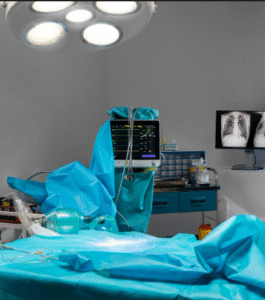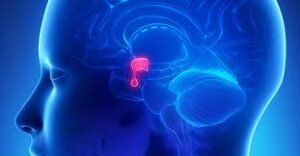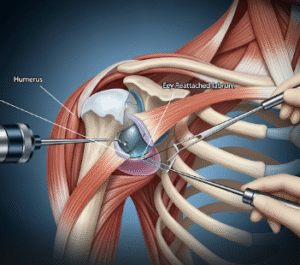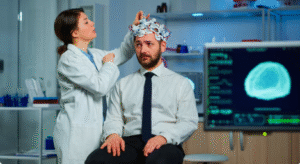Overview
Febrile seizures are seizure episodes triggered by fever in infants and young children, typically between the ages of 6 months and 5 years. They are the most common type of seizure in children and, while alarming for parents, they are usually benign and self-limiting. In Korea, pediatric neurology and emergency departments are well equipped to manage febrile seizures with advanced diagnostic tools, immediate emergency care, and long-term monitoring to differentiate them from epilepsy or other neurological conditions.
What are Febrile Seizures?
Febrile seizures occur when a child experiences abnormal electrical activity in the brain in response to a rapid rise in body temperature, usually above 38°C (100.4°F). Unlike epilepsy, febrile seizures are not caused by chronic neurological disorders but are instead fever-related convulsions.
They are categorized into:
- Simple febrile seizures: Generalized seizures lasting less than 15 minutes, occurring once in 24 hours.
- Complex febrile seizures: Lasting more than 15 minutes, focal in nature, or recurring within 24 hours.
Symptoms
- Sudden loss of consciousness
- Shaking or jerking movements of arms and legs
- Eye rolling
- Stiffening of the body
- Temporary breathing difficulty or cyanosis (bluish skin)
- Sleepiness or confusion after the seizure (postictal state)
- Fever (often preceding or during the seizure episode)
Causes
- Rapid increase in body temperature (often with infections such as influenza, ear infections, or upper respiratory illnesses)
- Genetic predisposition (family history of febrile seizures)
- Viral or bacterial infections common in children
- Post-vaccination fever (in rare cases, certain vaccines may trigger mild febrile seizures)
Risk Factors
- Age (6 months–5 years is the most vulnerable period)
- Family history of febrile seizures or epilepsy
- High fever (especially sudden spikes)
- Neurological development factors (slight immaturity of the nervous system in infants)
Complications
- Most febrile seizures are harmless and do not cause long-term damage. However:
- Recurrent seizures may occur in some children.
- A small percentage may later develop epilepsy.
- Complex febrile seizures carry a slightly higher risk of long-term neurological complications.
- Parental anxiety and emergency-related risks (e.g., injuries during seizures)
Prevention
- Timely management of fever with antipyretics (acetaminophen or ibuprofen)
- Adequate hydration during illnesses
- Monitoring children closely during viral infections
- Educating caregivers about safe seizure first aid
- Avoiding overheating in children during fevers
Treatment Options in Korea
Diagnosis:
- Detailed clinical history and physical examination
- Blood tests to identify infections
- Lumbar puncture (if meningitis is suspected)
- EEG (electroencephalogram) for recurrent or complex seizures
- Brain imaging (MRI or CT scan) if neurological causes are suspected
Medical Treatments:
- Immediate management of fever with antipyretics
- Rescue medications (rectal diazepam or intranasal midazolam) for prolonged seizures
- Antibiotics or antivirals if infection is the cause
- Hospital observation for children with complex febrile seizures
Surgical or Advanced Interventions:
- Surgery is rarely required since febrile seizures are not caused by structural brain abnormalities.
- Advanced monitoring for children at risk of epilepsy
Rehabilitation & Support:
- Parental education programs in Korean hospitals to guide caregivers on seizure first aid
- Follow-up care with pediatric neurologists for recurrent or complex cases
- Psychological support for parents dealing with anxiety related to seizures
- Developmental monitoring to ensure the child’s neurological growth remains normal













